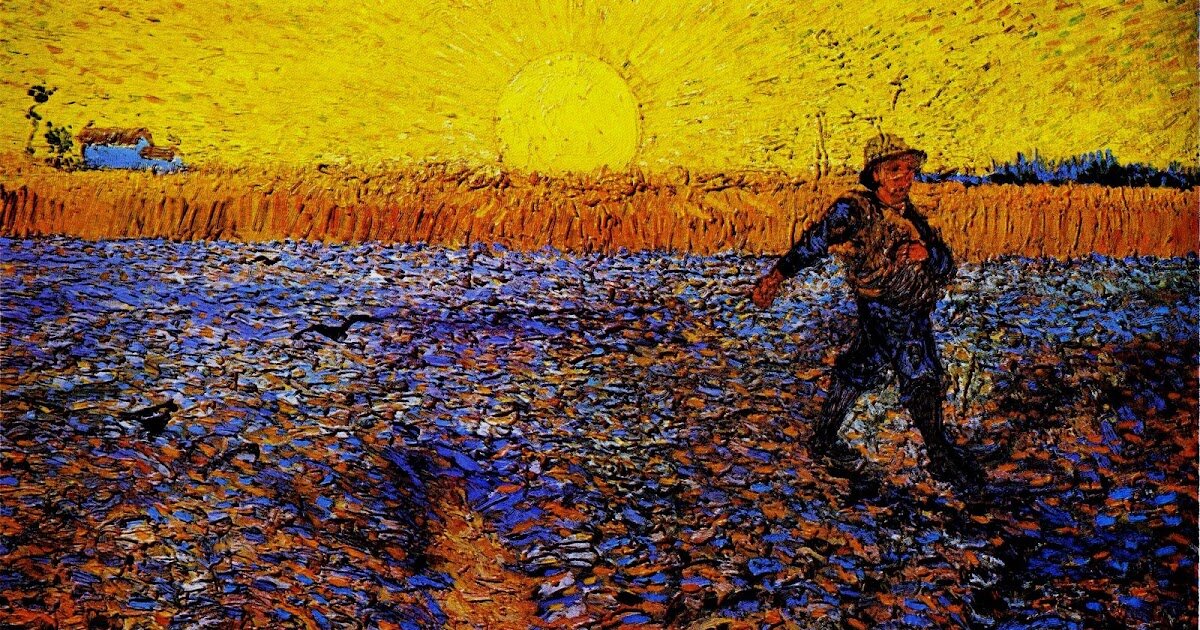The Sower – 16 July 2023
Matthew 13:1–9, 18–23
Passages like this one in Matthew make it clear that we at times (in fact, more than not) face challenges on our faith journey. How do we get choked out or dried up in our faith? When do we feel like our lives just gobble up our best intentions?
The problem with reading the text this way is the same difficulty we faced last week. We can become so paranoid that we are not the best gardeners that we begin to rely on our own skills in pruning and cultivating. We faithfully understand that there is a great deal at stake in keeping a good garden. We buy fertilizers and consult cultivation books and DVDs. We watch the
Do-It-Yourself network for tips. We till and we rake until our backs scream in pain. We pull and we pluck and we plant evil-looking scarecrows in our gardens to warn away trespassers whom we are unable to tolerate, much less forgive if they endanger our garden.
Our intentions are good, but Jesus tells us that they are off the mark. The subject of the parable is neither the seeds nor the soil. Jesus begins by saying, “A sower went out to sow…” Who then, is the sower? When we concentrate on the quality of the soil and the fragility of the seed, the answer is us. We are the sowers. Our tendency is then to believe that we are the keepers of the quality of God’s word. We are not only charged with spreading God’s word, but we are also somehow responsible for the quality of the world in which the word is expected to grow. –– Katrina L. Holland
Romans 8:1–11
As God’s children, we bear witness to that Father and bear what the Father bears, which is often suffering in the present, incomplete world. This leads into the last pericope which addresses the reason that suffering is not hopeless, because it takes place in the already and not yet reign of God, as God continues to bring about the world to come. What is to come, the endpoint of hope, is worth more than all we can suffer in this present age. –– Timothy V. Olson
Isaiah 55:10–13
The word, the promise of God, is compared to the rain and snow from the skies that does not return until it has saturated and given life to the earth. . . When we know the promise of God also as the embodied Word, Jesus Christ, then the feast of plenty and the nourished, fruitful creation is the recipient and the result of that promise.
Little wonder that in many of this week’s texts, the nonhuman part of God’s creation is given voice and part. From Isaiah 55, where the mountains, hills and trees sing and clap praises to God. . . to Romans 8:18–23, when all of creation also groans in the labor to birth a new creation, and all creation will be set free—the scriptures make it clear that we human beings are not the only ones longing for a “foretaste of the feast to come”; nor are we alone valued and imbued with something of the breath of God. –– Meghan Johnston
Katrina L. Holland is interim pastor of Salem Evangelical Lutheran Church, in Lebanon, Pennsylvania.
Timothy V. Olson is the pastor at Holy Trinity Lutheran Church, Ankeny, Iowa.
Meghan Johnston, an ordained Lutheran pastor and PhD in Religion, Media, and Culture, is the ELCA Theologian in Residence for the Middle East and North Africa based in the Evangelical Lutheran Church in Jordan and the Holy Land, living in Jerusalem.
Homily Service 38, no. 8 (2005): 13–23.
